- Home
- Ian Mcewan
The Child in Time Page 2
The Child in Time Read online
Page 2
They had been married six years, a time of slow, fine adjustments to the jostling principles of physical pleasure, domestic duty and the necessity of solitude. Neglect of one led to diminishment or chaos in the others. Even as he gently pinched Julie’s nipple between his finger and thumb he was making his calculations. Following her broken night and a shopping expedition, Kate would be needing sleep by midday. Then they could be sure of uninterrupted time. Later, in the sorry months and years, Stephen was to make efforts to re-enter this moment, to burrow his way back through the folds between events, crawl between the covers, and reverse his decision. But time – not necessarily as it is, for who knows that, but as thought has constituted it – monomaniacally forbids second chances. There is no absolute time, his friend Thelma had told him on occasions, no independent entity. Only our particular and weak understanding. He deferred pleasure, he caved in to duty. He squeezed Julie’s hand and stood. In the hall Kate came towards him talking loudly, holding up the scuffed toy donkey. He bent to loop the red scarf twice around her neck. She was on tiptoe to check his coat buttons. They were holding hands even before they were through the front door.
They stepped outdoors as though into a storm. The main road was an arterial route south, its traffic rushed with adrenal ferocity. The bitter, anti-cyclonic day was to serve an obsessive memory well with a light of brilliant explicitness, a cynical eye for detail. Lying in the sun by the steps was a flattened Coca-Cola can whose straw remained in place, still three-dimensional. Kate was for rescuing the straw, Stephen forbad it. And there, by a tree, as though illuminated from within, a dog was shitting with quivering haunches and uplifted, dreamy expression. The tree was a tired oak whose bark looked freshly carved, its ridges ingenious, sparkling, the ruts in blackest shadow.
It was a two-minute walk to the supermarket, over the four-lane road by a zebra crossing. Near where they waited to cross was a motor-bike salesroom, an international meeting place for bikers. Melon-bellied men in worn leathers leaned against or sat astride their stationary machines. When Kate withdrew the knuckle she had been sucking and pointed, the low sun illuminated a smoking finger. However, she found no word to frame what she saw. They crossed at last, in front of an impatient pack of cars which snarled forwards the moment they reached the centre island. Kate looked out for the lollipop lady, the one who always recognised her. Stephen explained it was Saturday. There were crowds, he held her hand tightly as they moved towards the entrance. Amid voices, shouts, the electro-mechanical rattle at the checkout counters, they found a trolley. Kate was smiling hugely to herself as she made herself comfortable in her seat.
The people who used the supermarket divided into two groups, as distinct as tribes or nations. The first lived locally in modernised Victorian terraced houses which they owned. The second lived locally in tower blocks and council estates. Those in the first group tended to buy fresh fruit and vegetables, brown bread, coffee beans, fresh fish from a special counter, wine and spirits, while those in the second group bought tinned or frozen vegetables, baked beans, instant soup, white sugar, cupcakes, beer, spirits and cigarettes. In the second group were pensioners buying meat for their cats, biscuits for themselves. And there were young mothers, gaunt with fatigue, their mouths set hard round cigarettes, who sometimes cracked at the checkout and gave a child a spanking. In the first group were young, childless couples, flamboyantly dressed, who at worst were a little pressed for time. There were also mothers shopping with their au pairs, and fathers like Stephen, buying fresh salmon, doing their bit.
What else did he buy? Toothpaste, tissues, washing-up liquid, and best bacon, a leg of lamb, steak, green and red peppers, radice, potatoes, tin foil, a litre of Scotch. And who was there when his hand reached for these items? Someone who followed him as he pushed Kate along the stacked aisles, who stood a few paces off when he stopped, who pretended to be interested in a label and then continued when he did? He had been back a thousand times, seen his own hand, a shelf, the goods accumulate, heard Kate chattering on, and tried to move his eyes, lift them against the weight of time, to find that shrouded figure at the periphery of vision, the one who was always to the side and slightly behind, who, filled with a strange desire, was calculating odds, or simply waiting. But time held his sight for ever on his mundane errands, and all about him shapes without definition drifted and dissolved, lost to categories.
Fifteen minutes later they were at the checkout. There were eight parallel counters. He joined a small queue nearest the door because he knew the girl at the till worked fast. There were three people ahead of him when he stopped the trolley and there was no one behind him when he turned to lift Kate from her seat. She was enjoying herself and was reluctant to be disturbed. She whined and hooked her foot into her seat. He had to lift her high to get her clear. He noted her irritability with absent-minded satisfaction – it was a sure sign of her tiredness. By the time this little struggle was over, there were two people ahead of them, one of whom was about to leave. He came round to the front of the trolley to unload it on to the conveyor belt. Kate was holding on to the wide bar at the other end of the trolley, pretending to push. There was no one behind her. Now the person immediately ahead of Stephen, a man with a curved back, was about to pay for several tins of dog food. Stephen lifted the first items on to the belt. When he straightened he might have been conscious of a figure in a dark coat behind Kate. But it was hardly an awareness at all, it was the weakest suspicion brought to life by a desperate memory. The coat could have been a dress or a shopping bag or his own invention. He was intent on ordinary tasks, keen to finish them. He was barely a conscious being at all.
The man with the dog food was leaving. The checkout girl was already at work, the fingers of one hand flickering over the keypad while the other drew Stephen’s items towards her. As he took the salmon from the trolley he glanced down at Kate and winked. She copied him, but clumsily, wrinkling her nose and closing both eyes. He set the fish down and asked the girl for a carrier bag. She reached under a shelf and pulled one out. He took it and turned. Kate was gone. There was no one in the queue behind him. Unhurriedly he pushed the trolley clear, thinking she had ducked down behind the end of the counter. Then he took a few paces and glanced down the only aisle she would have had time to reach. He stepped back and looked to his left and right. On one side there were lines of shoppers, on the other a clear space, then the chrome turnstile, then the automatic doors on to the pavement. There may have been a figure in a coat hurrying away from him, but at that time Stephen was looking for a three-year-old child, and his immediate worry was the traffic.
This was a theoretical, precautionary anxiety. As he shouldered past shoppers and emerged on to the broad pavement he knew he would not see her there. Kate was not adventurous in this way. She was not a strayer. She was too sociable, she preferred the company of the one she was with. She was also terrified of the road. He turned back and relaxed. She had to be in the shop, and she could come to no real harm there. He expected to see her emerging from behind the lines of shoppers at the checkouts. It was easy enough to overlook a child in the first flash of concern, to look too hard, too quickly. Still, a sickness and a tightening at the base of the throat, an unpleasant lightness in the feet, were with him as he went back. When he walked past all the tills, ignoring the girl at his who was irritably trying to attract his attention, a chill rose to the top of his stomach. At a controlled run – he was not yet past caring how foolish he looked – he went down all the aisles, past mountains of oranges, toilet rolls, soup. It was not until he was back at his starting point that he abandoned all propriety, filled his constricted lungs and shouted Kate’s name.
Now he was taking long strides, bawling her name as he pounded the length of an aisle and headed once more for the door. Faces were turning towards him. There was no mistaking him for one of the drunks who blundered in to buy cider. His fear was too evident, too forceful, it filled the impersonal, fluorescent space with unignorable human warmth. Wi
thin moments all shopping around him had ceased. Baskets and trolleys were set aside, people were converging and saying Kate’s name and somehow, in no time at all, it was generally known that she was three, that she was last seen at the checkout, that she wore green dungarees and carried a toy donkey. The faces of mothers were strained, alert. Several people had seen the little girl riding in the trolley. Someone knew the colour of her sweater. The anonymity of the city store turned out to be frail, a thin crust beneath which people observed, judged, remembered. A group of shoppers surrounding Stephen moved towards the door. At his side was the girl from the checkout, her face rigid with intent. There were other members of the supermarket hierarchy in brown coats, white coats, blue suits, who suddenly were no longer ware-housemen or sub-managers or company representatives, but fathers, potential or real. They were all out on the pavement now, some crowding round Stephen asking questions or offering consolation while others, more usefully, set off in different directions to look in the doorways of nearby shops.
The lost child was everyone’s property. But Stephen was alone. He looked through and beyond the kindly faces pressing in. They were irrelevant. Their voices did not reach him, they were impediments to his field of vision. They were blocking his view of Kate. He had to swim through them, push them aside to get to her. He had no air, he could not think. He heard himself pronounce the word ‘stolen’ and the word was taken up and spread to the peripheries, to passers-by who were drawn to the commotion. The tall girl with the fast fingers who had looked so strong was crying. Stephen had time to feel momentary disappointment in her. As if summoned by the word he had spoken, a white police car spattered with mud cruised to a halt at the kerb. Official confirmation of disaster made him nauseous. Something was rising in his throat and he bent double. Perhaps he was sick, but he had no memory of it. The next thing was the supermarket again, and this time rules of appropriateness, of social order had selected the people at his side – a manager, a young woman who might have been a personal assistant, a sub-manager and two policemen. It was suddenly quiet.
They were heading briskly towards the rear of the vast floor space. It was some moments before Stephen realised that he was being led rather than followed. The shop had been cleared of customers. Through the plate-glass window on his right he saw another policeman outside surrounded by shoppers, taking notes. The manager was talking quickly into the silence, partly hypothesising, partly complaining. The child – he knows her name, Stephen thought, but his status prevents him from using it – the child might have wandered into the loading-bay area. They should have thought of that first. The cold-store door was sometimes left open, however often he remonstrated with his subordinates.
They quickened their pace. An unintelligible voice spoke in short bursts over a policeman’s radio. By the cheese section they passed through a door into an area where all pretences were dropped, where the plastic tiled floor gave way to one of concrete in which mica sparkled coldly, and where light came from high, bare bulbs hung from an invisible ceiling. There was a forklift truck parked by a mountain of flattened cardboard boxes. Stepping over a dirty puddle of milk, the manager was hurrying towards the cold-store door which stood ajar.
They followed him into a low, cramped room in which two aisles stretched away into semi-darkness. Tins and boxes were piled untidily into racks along the sides, and down the centre, suspended from meat-hooks, were giant carcasses. The group divided into two and set off down the aisles. Stephen went with the policemen. The cold air penetrated drily to the back of the nose and tasted of chilled tin. They walked slowly, looking into the spaces behind the boxes in the racks. One of the policemen wanted to know how long someone could last in here. Through the chinks in the meat curtain which divided them, Stephen saw the manager glance at his subordinate. The young man cleared his throat and answered tactfully that as long as you kept moving you had nothing to worry about. The vapour billowed from his mouth. Stephen knew that if they found Kate in here she would be dead. But the relief he felt when the two groups met at the far end was abstract. He had become detached in an energetic, calculating way. If she was to be found, then they would find her because he was prepared to do nothing else but search; if she was not to be found, then, in time, that would have to be faced in a sensible, rational manner. But not now.
They stepped out into an illusory, tropical warmth and made for the manager’s office. The policemen took out their notebooks and Stephen told his story, which was energetic both in delivery and in attention to detail. He was sufficiently removed from his own feelings to take pleasure in succinctness of expression, the skilful marshalling of relevant facts. He was watching himself, and saw a man under stress behaving with admirable self-control. He could forget Kate in the meticulous detailing of her clothing, the accurate portrayal of her features. He admired also the dogged, routine questioning of the policemen, the oil and leather smell of their polished gun holsters. They and he were men united in the face of unspeakable difficulty. One of the policemen spoke his description of Kate into the radio and they heard a distorted answer from a patrol car in the neighbourhood. That was all very reassuring. Stephen was entering a state close to elation. The manager’s personal assistant was speaking to him with a concern he felt was quite misplaced. She was pressing her hand against his forearm, and urging him to drink the tea she had brought. The manager was standing just outside his office complaining to an underling that supermarkets were the favoured territory of child snatchers. The personal assistant pushed the door shut briskly with her foot. The sudden movement released perfume from the folds of her sober clothes and caused Stephen to think of Julie. He confronted a blackness which emanated from inside the front of his head. He took hold of the side of his chair and waited, let his mind empty and then, when he felt he had gained control, stood. The questioning was over. The policemen were folding away their notebooks and standing too. The personal assistant offered to escort him home, but Stephen shook his head vigorously.
Then, without any apparent interval, any connecting events, he was outside the supermarket, waiting at the zebra crossing with half a dozen other people. In his hand was a full shopping bag. He remembered that he had not paid. The salmon and tin foil were free gifts, compensation. The traffic slowed reluctantly and stopped. He crossed with the other shoppers and tried to absorb the insult of the world’s normality. He saw how rigorously simple it was – he had gone shopping with his daughter, lost her, and was now returning without her to tell his wife. The bikers were still there, and so too, further on, was the Coca-Cola can and its straw. Even the dog was under the same tree. On his way up the stairs he paused by a broken step. There was loud crashing music in his head, a great, orchestral tinnitus whose dissonance faded as he stood there holding the banister and started up again the moment he continued.
He opened the front door and listened. The air and light in the flat told him that Julie was still asleep. He took off his coat. When he lifted it to hang it up, his stomach contracted and a bolt – he thought of it as a black bolt – of morning coffee shot into his mouth. He spat into his cupped hands and went into the kitchen to wash. He had to step over Kate’s discarded pyjamas. That seemed relatively easy. He entered the bedroom with no thought for what he was about to do or say there. He lowered himself on to the edge of the bed. Julie rolled over to face him but she did not open her eyes. She found his hand. Hers was hot, unbearably so. She said something sleepily about how cold his hand was. She drew it towards her and tucked it under her chin. Still she did not open her eyes. She luxuriated in the security of his presence.
Stephen gazed down on his wife and certain stock phrases – a devoted mother, passionately attached to her child, a loving parent – seemed to swell with fresh meaning; these were useful, decent phrases, he thought, tested by time. A neat curl of black hair lay on her cheekbone, just below her eye. She was a calm, watchful woman, she had a lovely smile, she loved him fiercely and liked to tell him. He had built his life round their intima
cy and come to depend on it. She was a violinist, she taught at the Guildhall. With three friends she had formed a string quartet. They were getting bookings and they had had one small, favourable notice in a national newspaper. The future was, had been, rich. The fingers of her left hand with their pads of toughened skin were stroking his wrist. He was looking down at her from an immense distance now, from several hundred feet. He could see the bedroom, the Edwardian apartment block, the tarred roofs of its back additions with their lop-sided, crusty cisterns, the mess of South London, the hazy curvature of the earth. Julie was barely more than a speck among the tangle of sheets. He was rising still higher, and faster. At least, he thought, from up here where the air was thin and the city below was taking on geometric design, his feelings would not show, he could retain some composure.
It was then that she opened her eyes and found his face. It took her some seconds to read what was there before she scrambled upright in the bed and made a noise of incredulity, a little yelp on a harsh intake of breath. For a moment explanations were neither possible nor necessary.
In general, the committee was not well disposed towards a phonetic alphabet. Colonel Jack Tackle of the End Domestic Violence Campaign had said it sounded like a bloody nonsense. A young woman called Rachael Murray had delivered a tense rebuttal whose reliance on the language of professional linguistics could not disguise her quivering contempt. Now Tessa Spankey beamed about her. She was a publisher of children’s books, a large woman with dimples at the base of each finger. Her face was double-chinned and friendly, all freckles and crow’s-feet. She took care to include each of them in her tender gaze. She spoke slowly and reassuringly, as though to a group of nervous infants. There was no language in the world, she said, which was not arduous to learn to read and write. If learning could be fun, that was all very well. But fun was peripheral. Teachers and parents should embrace the fact that at the heart of language learning was difficulty. Triumph over difficulty was what gave children their dignity and a sense of mental discipline. The English language, she said, was a minefield of irregularity, of exceptions outnumbering rules. But it had to be crossed, and crossing it was work. Teachers were too afraid of unpopularity, too fond of sugaring pills. They should accept difficulty, celebrate it, and make their pupils do likewise. There was only one way to learn to spell and that was through exposure, immersion in the written word. How else – and she rattled off a well-rehearsed list – do we learn the spellings of through, tough, plough, cough and though? Mrs Spankey’s maternal gaze raked the attentive faces. Diligence, she said, application, discipline and jolly hard work.

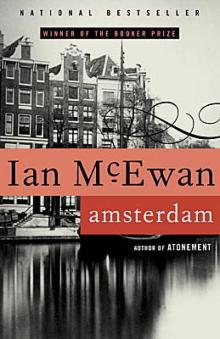 Amsterdam
Amsterdam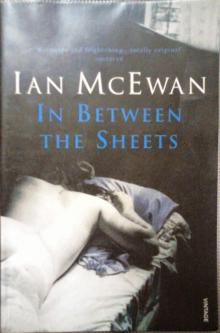 In Between the Sheets
In Between the Sheets Atonement
Atonement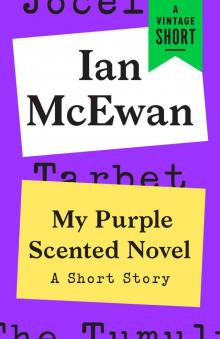 My Purple Scented Novel
My Purple Scented Novel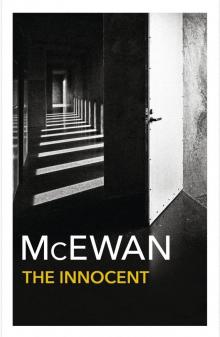 The Innocent
The Innocent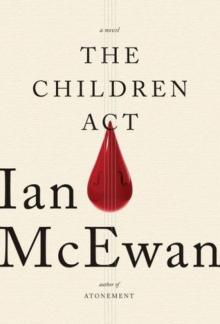 The Children Act
The Children Act Enduring Love
Enduring Love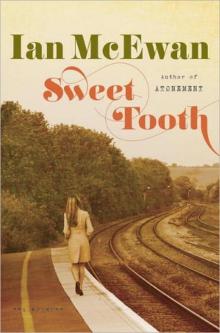 Sweet Tooth
Sweet Tooth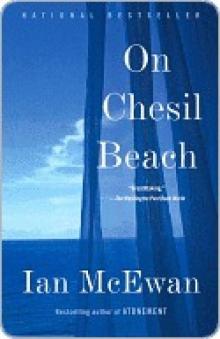 On Chesil Beach
On Chesil Beach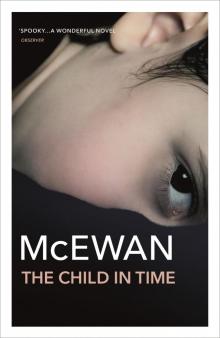 The Child in Time
The Child in Time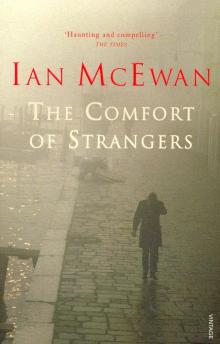 The Comfort of Strangers
The Comfort of Strangers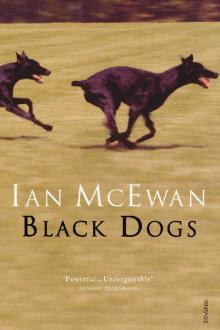 Black Dogs
Black Dogs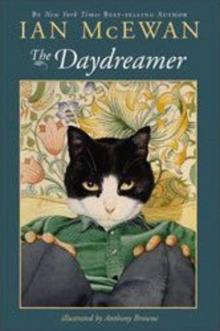 The Daydreamer
The Daydreamer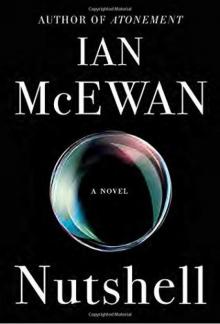 Nutshell
Nutshell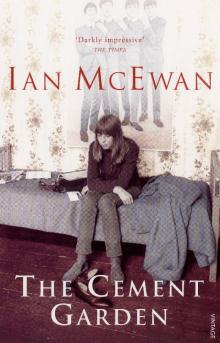 The Cement Garden
The Cement Garden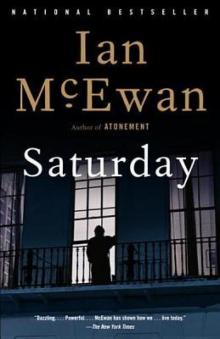 Saturday
Saturday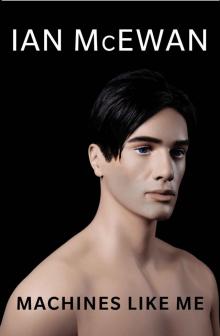 Machines Like Me
Machines Like Me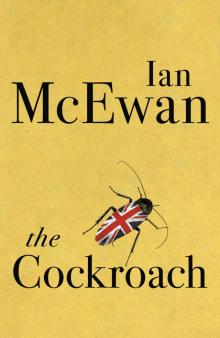 The Cockroach
The Cockroach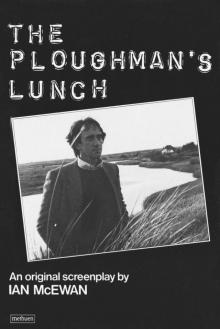 The Ploughman’s Lunch
The Ploughman’s Lunch